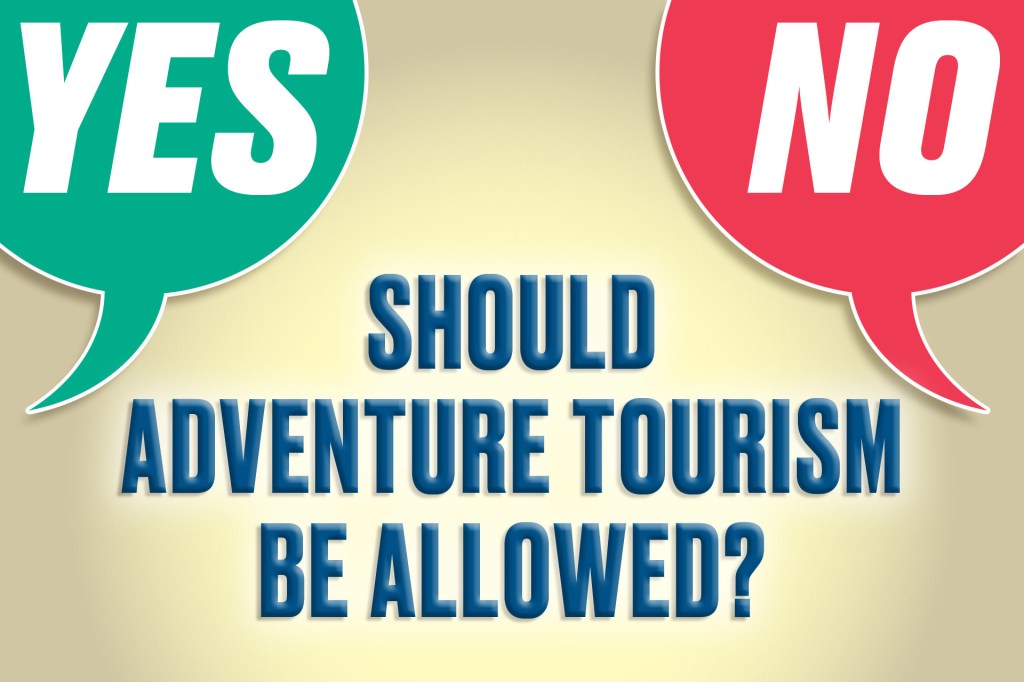
Traveling by submarine to view an underwater shipwreck. Trekking to the top of a distant mountain. Buckling in on a space ship. Extreme adventure tourists are always seeking the next thrill. According to Grand View Research, they were expected to spend more than $1 trillion in 2023 alone. But with extreme adventure comes extreme risk—to the tourists and, if they’re not careful, to the places on which they leave their mark. Should adventure tourism be allowed? TFK readers weigh in.

Cecilia Dietz, 9
Granger, Indiana
Extreme adventure tourism should definitely be allowed. It encourages the next generation of adventurers. It also opens more opportunities for family fun, which happens less and less these days as technology improves.
Adventure tourism also helps the environment. If people have positive experiences in places, they are more likely to want to donate. The more that people donate to natural wonders, the more that can be done about the destruction of these beauties. This means that the next generation would get to enjoy them.

Yeonjae Noh, 11
Jeju, South Korea
Extreme tourism should be discouraged, because it’s not worth the risk. It consists of dangerous activities that can have a negative impact, on the tourists and on the environment. Wildlife can be harmed. Ecosystems can be destroyed because of the trash left behind by tourists.
Also, when extreme tourists get injured or lost, police and rescue forces are required. These forces are needed to help regular citizens, and there’s a limited amount of help they can provide. Some people might be neglected while help is provided for tourists.

Shaurya Rajput, 11
Foster City, California
People should have the right to go on an adventure. If you don’t want to go, you don’t have to. Adventure tourism helps clear your mind. It allows you to connect with nature and disconnect from your day-to-day work. Travel helps people broaden their point of view and see the world in a better way. It allows them to connect with people, learn new cultures, and explore geographic locations.
Adventure tourism helps people overcome their fears, feel strong, and have a sense of achievement. Plus, it boosts the local economy. Adventures are fun, especially when you’re with your family.

Emery Sumen, 11
Los Angeles, California
Extreme tourism can be very expensive and extremely dangerous. You can see this with the OceanGate accident. The people paid so much money to be in the submarine, and they died [when it imploded]. The same goes for mountain tourism. There could be an avalanche. It’s just too dangerous, and it’s not worth the risk.
Tourism of all types results in pollution and littering. And there are environmental hazards associated with adventure-tourism activities such as kayaking, scuba diving, and rappelling.
The Next Debate! Should summer reading be mandatory? Email your opinion to tfkeditors@time.com by May 31. Your response might be featured online or in an upcoming issue.
*Submissions have been edited only for length and clarity. They are not intended to reflect the views of TIME for Kids. Ages are accurate as of the time of submission.












